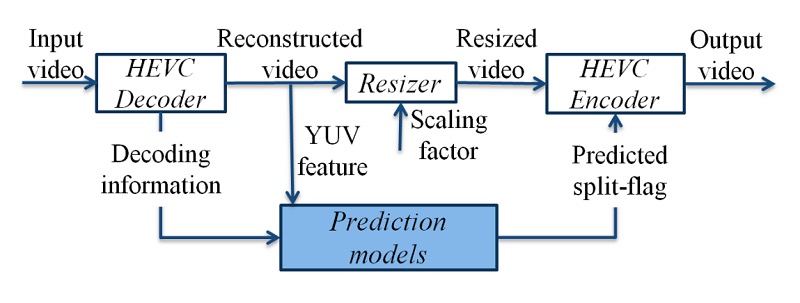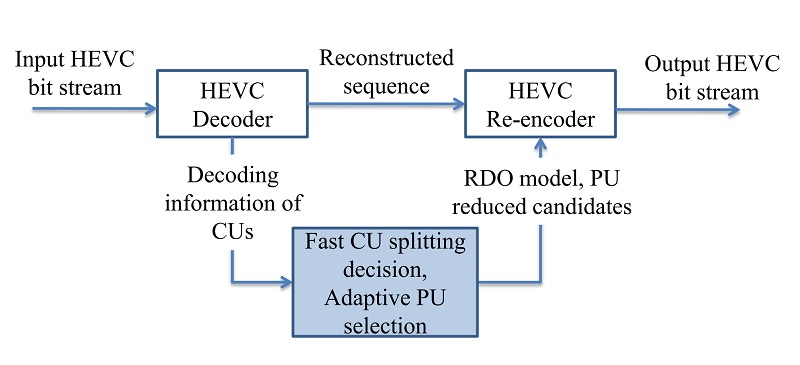Our paper, “Performance analysis of machine learning for arbitrary downsizing of pre-encoded HEVC video”, has been accepted for publication in the IEEE Transactions on Consumer Electronics.

The recently finalized High Efficiency Video Coding (HEVC) standard significantly outperforms previous standards such as MPEG-4, H.263 and H.264/AVC in terms of bit rate savings for the same perceptual quality. However, in order to use the HEVC standard for new applications, effective adaptation techniques are needed. Adaptation techniques could be necessary to meet network bandwidth constraints or resolution constraints of playback devices. For these purposes, resolution downscaling can be performed. The aim of this paper is to investigate the performance of different strategies for a machine learning approach to arbitrary downsizing of HEVC video. These machine learning techniques exploit correlation between input and output coding information to predict the splitting behavior of HEVC coding units. To determine the best machine learning strategy, first, different algorithms are compared. Some of these algorithms can use a transcoding complexity control mechanism to achieve a trade-off between complexity reduction and coding performance. Second, several methods for optimizing the machine learning parameters, as well as a content-adaptive algorithm for feature elimination are applied. Third, both online and offline training strategies are evaluated. Experimental results demonstrate that the most compression-efficient approach consists of using an optimized RandomForest algorithm with an online training strategy. This approach can achieve an average complexity reduction of 71% with a bit rate increase of 5.4%.








